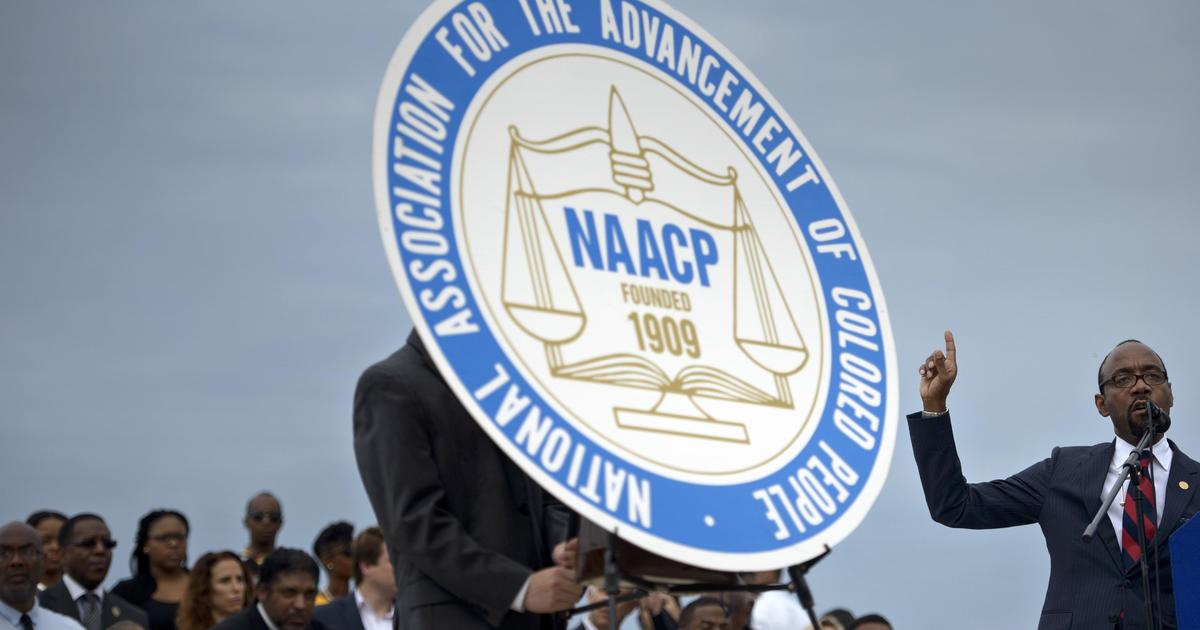
Many people rely on the stock market to maximize their investment returns, while others increasingly hitch their portfolio to social causes in order to align their financial goals and personal ethics. The NAACP is out to do both by offering an exchange-traded fund for racially conscious investors.
The nation’s largest civil rights organization created its Minority Empowerment ETF two years ago. The $6 million fund contains stock from some of the nation’s most profitable companies, including Bank of America, Home Depot and Starbucks. For investors, that has helped produce robust annual returns of 11.9%. But profits are only part of the story.
The NAACP fund is a niche example of a growing class of investments known as Environmental, Social and Governance, or ESG, funds, in which companies are evaluated for these and other criteria that go beyond their ability to make a buck.
“Performance boost”
The fund is the core of Morningstar’s Minority Empowerment Index, which the investment firm say offers “exposure to U.S. companies that have embedded strong racial and ethnic diversification policies into their corporate culture and that ensure equal opportunities to employees irrespective of their race or nationality.”
Such attributes are something investors should care about, said Morningstar Indexes strategist Dan Lefkovitz. “There’s a stigma that when you invest based on ESG criteria, you’re going to sacrifice some money,” he said. “We just don’t see any evidence of that. If anything, there’s more of a performance boost.”
Lefkovitz notes that the NAACP fund has performed as well as others in its class. Meanwhile, the Minority Empowerment Index gained 26.4% between May 2018 and July 2020, while its benchmark index — the U.S. Large-Mid Cap — rose 26%.
Among the criteria used to choose the NAACP fund’s components: a company’s record in contributing to communities of color, a strong corporate discrimination policy, diversity among its board of directors and racial diversity among its suppliers. Bank of America, for example, was added in part because a third of its board members are women and 20% are people of color.
Home Depot also earned its way into the fund, said Ethan Powell, a financial analyst who helped the NAACP launch the ETF. The NAACP chose to include the home improvement chain despite controversy last year over one of its co-founders supporting President Donald Trump, a noose being found at a Delaware location and a black employee being fired for standing up to a white heckler.
“If you look at a company like Home Depot, the founder, Arthur Blank, has a large $5 billion family office. He signed a giving pledge. He’s done a lot in the Atlanta area to advance issues impacting communities of color,” Powell said.
Marvin Owens, the NAACP’s economic programs senior director, said the organization has for decades scored companies based on the diversity of their executive leadership and other factors. So launching AN investment fund that incorporates such traits was a natural step.
“We believe that, over the long term, companies that are empowering people of color will be better managed and will ultimately lead to better long-term returns because they have better self-awareness,” Powell said.
Giving Facebook the boot
The NAACP re-evaluates each company in the fund annually, and a company can be kicked out if officials make a racially or socially insensitive move. But scoring companies is a moving target.
Starbucks was part of the fund in April 2018 when a white employee at a Philadelphia location called the police on two black men, for example. A month later, all Starbucks employees received mandatory racial bias training. Starbucks officials also spoke to the NAACP, and ultimately the group decided to keep the coffee chain in the fund, Powell said.
“The counterpoint to that is Facebook,” Powell said, adding that the tech giant was removed after talks about hate speech between CEO Mark Zuckerberg and NAACP CEO Derrick Johnson in July soured. Going forward, companies will be screened out if they engage in the “monetization of hate speech,” Powell said.
The NAACP fund enters its third year just as the nation is experiencing a racial awakening. The killings of George Floyd in Minnesota and Breonna Taylor in Kentucky at the hands of police have ignited a wave of Americans demanding more accountability from prosecutors, judges and police chiefs. Those demands have even extended to multibillion dollar companies, many of whom have pledged to help eradicate systemic racism.
Owens said corporations have recently been calling the NAACP looking for ideas on how to strengthen their ties with communities of color. “Corporations are making these explicit statements around standing against racial discrimination, so our engagement with them has ensured that we get more out of them than just a statement.”

